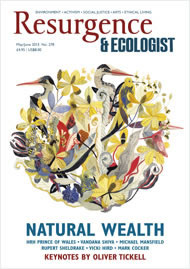Peter Redgrove’s The Black Goddess and the Sixth Sense (published in 1987) makes a lot of sense to those who prefer to depend upon the warmth of intuition rather than call upon the cold of logic. It sets out to explain why certain phenomena occur and why we are affected by them. It’s a salutary read. Redgrove wrote it, he explains, to prompt questions rather than to come up with answers. It certainly does that. It’s a good read; I enjoyed it. I was lent it right at a time when I’d been experiencing something I didn’t know how to explain, which I had experienced before.
I write historical fiction set around horses. The subject of my book was Incitatus, the horse of the emperor Caligula. Once again, I found that at some stage the book seemed to take over, as if it were writing itself: some higher, better-informed mind was laying out the narrative; I was just the conduit. I was being shown something. When I thought I was writing fiction, I was writing fact.
For example, during some part of the narrative I found myself writing about a swamp, how Roman civil engineers had struggled with it for years, how people became lost to its depths and what a dangerous, mosquito-infested and eerie place it was. Those few lines came straight out of the ether. I don’t know that part of Italy, nor any of the Appian Way east of Baiae, about which I was writing. Nor had I researched it. I find it better to write than research, and for this reason: when I researched that stretch of the Appian Way, I found the Pontine Marshes exactly where I had placed them. What I had written was pretty nearly word for word what had been recorded by Roman engineers of the day. It was historically, geographically and physically accurate. I thought I’d invented it.
What is this? I’m not sure, but whatever it is I have grown to trust it. I have experienced it dozens of times now. I suspect this is what the ancients described as the Muses. In the East it’s known as the Akashic Record. Charles Babbage (he of the first mechanical computer in the 1850s) stated: “The air itself is one vast library on whose pages are forever written all that man has ever said or woman whispered.”
I suspect it’s not just writers who have shared this sensation: perhaps musicians, artists, cabinetmakers, engineers, builders, architects know it well. Anyone who falls into that deep, yet relaxed place when they deliver their best work. It’s a wonderful, illuminating space to inhabit, which I sense can be developed to a high degree, although I don’t imagine it can be conjured up artificially. One cannot command it: it doesn’t work like that. It feels to me more like being absorbed by it than the other way round, and it comes when one is entirely consumed by whatever one is doing.
The Nobel Prize-winning author Maurice Maeterlinck called it the universal pool, others call it the law of attraction, and some suggest it’s divine. Jung wrote about it as the numinous experience that appears to spring from both the personal and the collective unconscious. Whatever it is, it is powerful and wholly engrossing. Moreover, I have had the experience of coming out of one of these strange reveries to look objectively at what I had written and not recognise a single word of it. It was as though someone else altogether had written it.
I have wondered how closely associated it might be with déjà vu and tried to explain it to myself by way of the morphic field that Rupert Sheldrake describes, albeit at a tangent: resonances, vibrations, a kind of time-machine teleportation where you see the events. I always have a very clear picture in my mind of what I am describing, down to very tight detail, and can even zoom in on that if necessary without losing the rest of the picture. I have looked up the Akashic Record but don’t understand enough about it. One definitely needs to be in India to do so, and I’ve not been there.
In the West there seems to be little academic research into this fascinating area of the mind, which seems odd to me given that it appears to be a common enough experience. People talk about it vaguely, yet as a subject it remains partly nebulous because it lacks a distinct vocabulary. It’s hard to nail down, because there are no precise words to describe it.
Of all explanations, the one that I find the most assured is that of the muse, since the other thing I have noticed about it is that when it occurs I am aware of its presence. Not a human presence, or anything that can be given a shape, perhaps it’s better described as an atmosphere with strong links to intuition, intuition being part although not all of its structure – or so it seems to me. And if I try to pin it down, it’s gone. It’s both nebulous and solid at the same time.
I have no idea what it is. All I know is that it is there and its knowledge is limitless. Anybody know what I’m on about? Had similar experiences?
The Muses
Calliope Muse of epic story
Clio Muse of history
Euterpe Muse of lyric word
Erato Muse of love poetry
Mnemosyne Mother of the muses, Goddess of memory
Polyhymnia Muse of sacred song
Terpsichore Muse of dance
Thalia Muse of comedy
Urania Muse of astronomy






